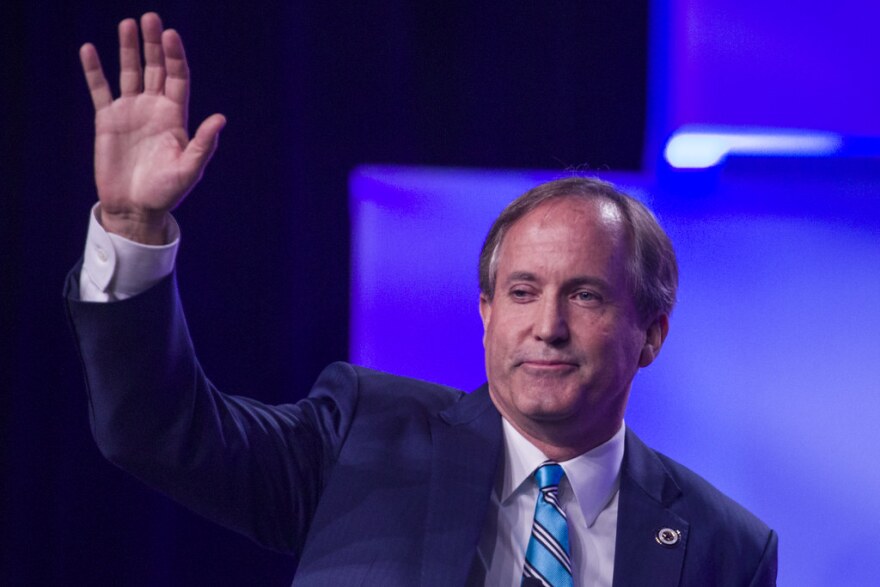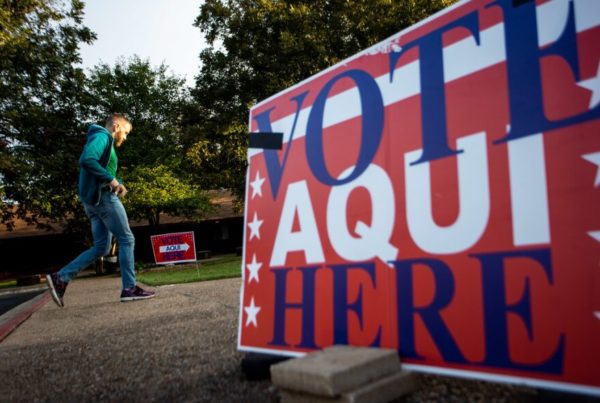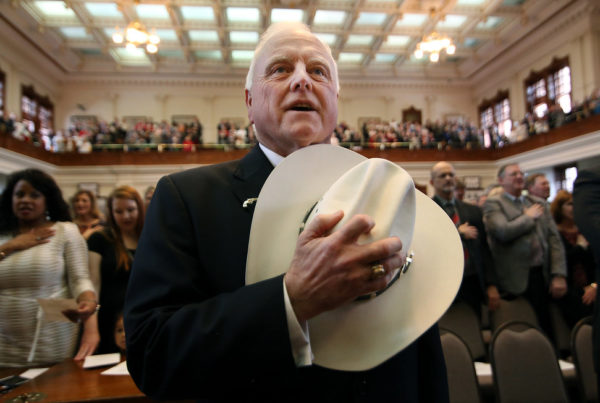Texas Attorney General Ken Paxton has filed suit over the Biden administration’s new requirement that federal contractors pay workers a minimum wage of $15 per hour. Paxton says the mandate is an overreach of federal jurisdiction, and would negatively impact the state economies. The lawsuit includes Mississippi and Louisiana as plaintiffs.
Biden said the executive order being challenged would increase the minimum wage of nearly 70,000 federal workers and around 300,000 employees of federal contractors. Texas’ minimum wage has been set at $7.25 for over a decade.
Mark Jones, a political science professor and fellow in political science at the Baker Institute at Rice University, spoke to Texas Standard about the lawsuit.
This interview has been edited lightly for clarity.
Mark Jones: Well, it’s Ken Paxton and it’s Joe Biden, and it’s primary season, so time for a lawsuit. In this case, it relates to a federal effort to increase the minimum wage for federal contractors across the country up to $15 an hour.
Texas hasn’t increased its minimum wage from $7.25 an hour in decades. With the amount of workplace dissatisfaction during the pandemic, wouldn’t a wage increase be beneficial? Even from a political standpoint?
It would, except it’s something that the Biden administration is doing. And within the Republican Party, there is some resistance to any concept of a minimum wage with an idea that the market should decide what wages are, not the federal government.
But again, politically speaking, if you’re talking about an increase in wages, surely that would translate into votes.
Wouldn’t a lot of people be affected by this increase to $15 an hour?
Well, this would only apply to federal contractors in the state of Texas. And roughly, that’s probably at most maybe 25,000 [people] who would actually benefit from it. The reality is, I think this is far more symbolic than anything else. This represents Attorney General Paxton attacking the Biden administration, which is a Democratic administration, obviously, and Paxton is a Republican in a pretty spirited Republican primary battle. And it’s on an issue where the right of the Republican Party, the more conservative wing – and even some of the business wing, has always resisted any idea of a minimum wage in any way, shape or form. And they would view this just symbolically as an attack on their efforts to keep Texas from having to raise its minimum wage anywhere.
From a business perspective, is the thrust of the argument against the increase that it would make it more expensive to do business with the federal government?
Well, yeah. Their argument is that it would affect their ability to be competitive and to be able to make a profit and essentially be successful.
Do you see this as having any traction? I mean, from a political standpoint, are people focused on this as an issue?
Well, I think the economy is an issue and certainly finding workers for low wages is increasingly impossible in Texas. But I think we need to remember that Paxton is really focused on the March 1st Republican primary now, and what he wants to be able to do is send a message to Republican primary voters that he is suing the Biden administration. He’s fighting the Biden administration. And if you want somebody who is anti-Biden, he’s your person. And the reality is when you ask Texas Republican primary voters what they think of Joe Biden, it’s almost universally negative. So this is far more, I think, symbolic politically. It’s a way for Paxton to show that he is fighting Democrats, and that’s what Republican primary voters want to see. And he hopes that translates into votes on March 1st to allow him to avoid a runoff against one of his three attorney general competitors.
Do you see this lawsuit challenging the minimum wage as having any legal legs?
No, I think this attempt by Attorney General Paxton to challenge the Biden administration on this issue is doomed, in large part because the federal government can determine what the wages for its contractors are. And that’s $15 right now, according to President Biden, who is president of the United States and makes those decisions, not Ken Paxton or the state of Texas.















